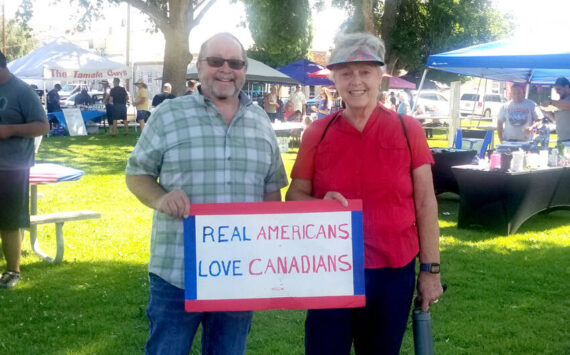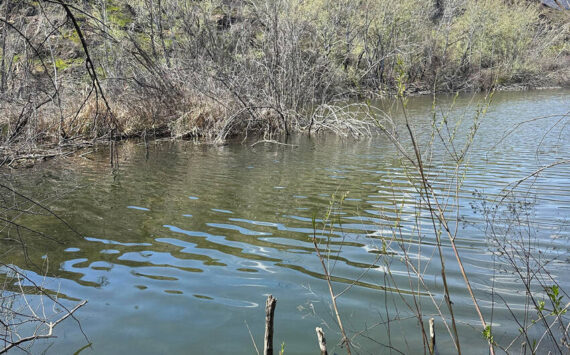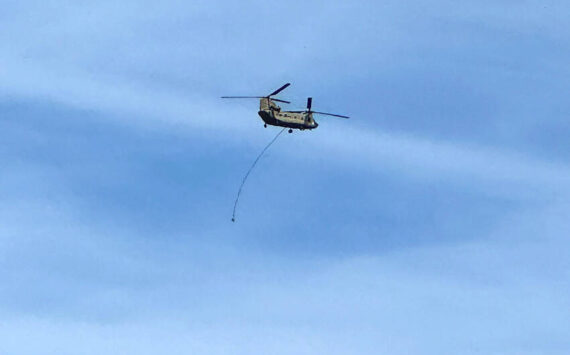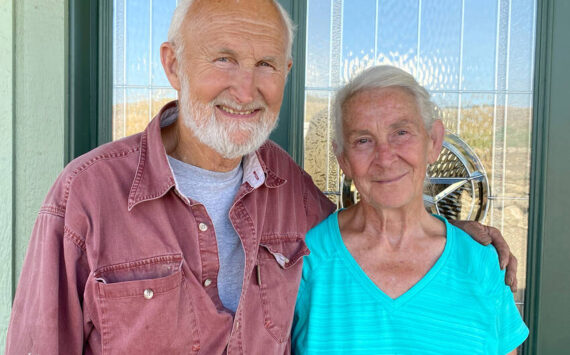TONASKET – Tonasket approved their six-year transportation plan at the city council’s July 12 meeting.
“The biggest change this year was the addition of Second St. from Joseph to East End,” said Alice Attwood, City Clerk in presenting Resolution 2011-06 to the council.
“We still have on there big projects like Division St., a new extension; Roy Stott’s Ave., Whitcomb Ave./SR 97 reconstruction and sidewalks and Havillah Rd./Stott’s Ave. sidewalk extension,” she added.
Mayor Patrick Plumb said that since the meeting was advertised as a public hearing the council should first hear comments from public before calling for a motion. He then asked that the projects on the plan be read aloud.
The Second St. project between Joseph and the east end is number one on the plan, with Second St. between State and Antwine number two. Miscellaneous is ranked third and the city park entrance is fourth. Sixth St. from Whitcomb to Western is fifth, Bonaparte from Seventh to its end is sixth, Third from Whitcomb to Western is seventh and Tonasket Ave from Third to Division is eighth.
The rest on the list are among the major projects where costs are unknown, according to the plan.
“Anyone have any concerns about the order of the projects?” Mayor Plumb asked.
There being no public comments the mayor called for a motion, which was made by Councilman Scott Olson and seconded by Councilwoman Jean E. Ramsey and passed unanimously.
During the Public Comment period of the regular meeting Kerri Alexander asked permission for the Campfire Girls to hold a car wash on July 17 at the Tonasket Visitor and Business Resource Center. Councilwoman Jill Vugteveen made a motion to approve permission and Ramsey seconded it.
Jerry Anderson asked the council why Tonasket was not spraying for mosquitoes like they were in Okanogan, Omak, Riverside and Oroville.
“Why are we skipping over Tonasket?” he asked.
The short answer was that the city had not budgeted for spraying, although it had been discussed for the past 10 years.
By way of history, Councilwoman Julianna Griffin said, “There was a lot of concern about the public health and from organic farmers who begged us not to because of worry about drift. That’s why we use the briquettes for a fraction of the price.”
The briquettes are a form of organic control that introduces bacteria into the water that kill the mosquito larvae. The spray that is commonly applied to control mosquitoes is malathion.
“As long gas the public shows strong concern then this needs to be considered at budget time,” said Mayor Plumb. “The community is either ready or not.”
Ramsey said that during previous meetings about mosquito control there was discussion about creating a mosquito control district.
“That would involve a tax upon themselves of a few pennies,” said Ramsey, adding that the last time Tonasket sprayed for mosquitoes was in the 1960’s.
“Individuals taking responsibility for their own yards would also go a long way,” Ramsey said.
Mayor Plumb said the problem would never be eliminated entirely with the city’s proximity to the Okanogan River and Bonaparte and Siwash creeks.
Cindy Bonitas brought the situation with weeds on west Third St. to the council’s attention. She said she noticed a lot of knapweed and asked permission to pull and bag it for the city to dispose of. She also asked permission to re-seed with Icelandic poppies and other non-invasive plants between Locust and Third.
She was told she could pull and plant on the city’s property, but would need permission to do so from the owners of any private property involved.
Dale Johnson also had a complaint about weeds on private property. He said a fire broke out in a neighbor’s yard and that if his daughter hadn’t seen the smoke and the fire department wasn’t called there was a chance the neighbor’s house as well as his own could have been lost. He told the council that two of the nearby homes are vacant and that no one is taking care of the yard and the tall weeds represent a real fire hazard.
“The City of Tonasket has so many ordinances that are not adhered to and if you’re not going to enforce them you should throw them out,” said Johnson, who also complained about a neighbor who had three big dogs that “are not taken care of.”
Mayor Plumb said that enforcing ordinances on private property presents a “conundrum.”
“We are concerned about peoples’ health and safety. We would like to get the code written in such a way to enforce it,” said Councilman Olson. “We also don’t want to start a police state.”
Plumb said that to the council’s credit they are taking the time to go through the city’s ordinances and get rid of the ones that are obsolete. He cited a 1928 ordinance that was recently removed that required people to vote in elections at the then local judge’s house.





